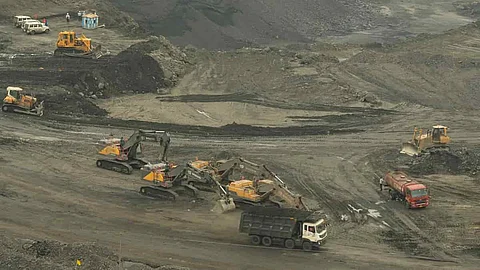

New Delhi: The Goods and Services Tax (GST) Council has raised the tax on coal and lignite from 5 percent to 18 percent, while scrapping the 40 percent compensation cess that was levied earlier. The Union government said on September 3 that the move is unlikely to burden buyers and will therefore have little to no impact on power tariffs.
Follow Energy Watch on X
Industry analysts agreed with the government’s stance and suggested the rate restructuring could in fact lower tariffs marginally.
Vikram V, Vice President and Co-Group Head, ICRA Ltd, said, “While the headline GST rate has increased, the removal of the cess is expected to reduce the cost of generation for coal-based power generators. This is expected to further benefit the discoms, as the move is likely to translate into a reduction of around Rs 12 paisa per unit in their cost of electricity supply, as coal-based capacity accounts for nearly 70% of total generation at an all-India level.”
Brokerage JM Financial Institutional Securities echoed the sentiment. “Despite the hike in tax, the impact remains neutral as input tax credit can be fully offset against final GST liability. At an industry level (assuming 15% coal usage), this translates into a benefit of Rs 5–10 per tonne,” it said. The firm added that the removal of the clean energy cess of Rs 400 per tonne is a positive, especially for players in East and Central India with higher reliance on coal.
Despite the neutral-to-positive outlook, the increase in GST on coal affected sentiment in the stock market. In Thursday’s trade, Coal India Ltd shares remained flat, while NLC India, Tata Power, and JSW Energy slipped over 1 percent each.
Follow Energy Watch on LinkedIN
To clarify the changes, the government issued a set of FAQs. “The Council has recommended to end Compensation Cess and hence the rate has been merged with GST. There is no additional burden,” it said, noting that prior to rationalisation coal attracted 5 percent GST in addition to the compensation cess of Rs 400 per tonne.
